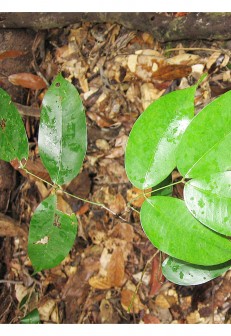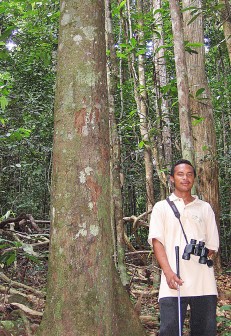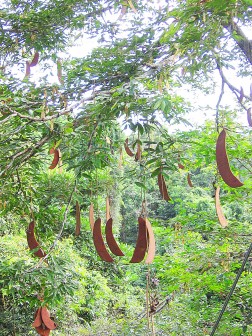Soft Wallaba or Wallaba is a canopy tree and seems to have a preference for extreme soil types – from very hydromorphic soils to dry soils. It is considered a generalist species (occurring in all forest types); however, it is dominant on white sand soils and often occurs as co-dominant with
Ituri Wallaba (Eperua grandiflora). These forests are classified as Wallaba forests.
Wallaba is highly resistant to decay and subterranean termites, and also fairly resistant to drywood termites. These properties make it suitable for transmission poles, flagstaffs, railway sleepers, shingles and more. This species is also used in general heavy construction, utility and industrial floors and chemical vat staves. For minor uses, the heartwood contains nine per cent tannin, which can be extracted and used to tan leather, while the tannin in the bark is used for curing diarrhoea and dysentery.


The seeds may be eaten by rodents in the event of scarcity of other seeds. The flowers are a staple resource for monkeys (howlers, spider, sakis) during the dry season.

Rain forests are rich in biodiversity and are home to many different plants and animals as well as indigenous communities. Humans, even those who don’t live in the rain forest, rely on it for resources such as building materials (wood and lianas),
medicine and fruits. Rain forests also provide esse
ntial environmental services for life on earth; they create soil as well as prevent soil erosion, produce oxygen though photosynthesis, maintain clean water systems, and are a key defence against climate change.
The Iwokrama Rain Forest is 371,000 hectares, located in the heart of Guyana. Our mission is to develop strategies for conservation and sustainable development for local people in Guyana and the world at large. We are involved in timber, tourism and training. Come and visit us in the rain forest or at http://www.iwokrama.org.





